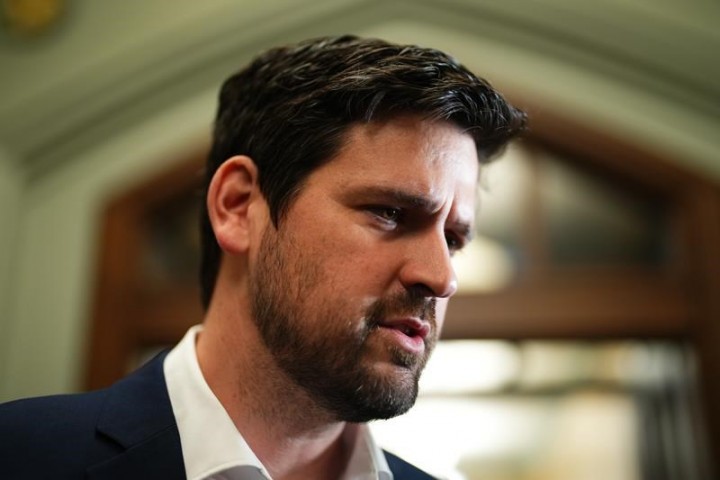OTTAWA — Ukrainians seeking refuge in Canada from war will have another few months to apply for temporary safe haven, Immigration Minister Sean Fraser announced Wednesday.
The deadline to apply for a three-year emergency visa was originally March 31, but people will now be able to apply until July 15.
After that date, Ukrainians will still be able to apply for traditional work, study and visitor permits to come to Canada, but they will be charged the usual fees associated with those applications.
“I would encourage people who are thinking of coming to Canada to apply to come, and if you need Canada’s protection, to come,” Fraser said at a press conference at Café Ukraine in Ottawa, a volunteer-based drop-in centre for displaced Ukrainians.
Ukrainians who have received an emergency visa will have until March 31 next year to make the journey to Canada, where the federal government will offer them a one-time income support payment and two weeks of hotel accommodations.
Those who have already arrived will also have a year to decide whether to extend their temporary visa if they wish to stay.
The number of arrivals had increased in March, and the looming deadline left people nervous, said Ihor Michalchyshyn, executive director of the Ukrainian Canadian Congress.
The extension to the program will give people in the settlement sector some certainty and allow Ukrainians to keep their options open, he said in an interview Friday.
“While the war continues, so too should the program,” said Randall Baran-Chong, the executive director of Pathfinders for Ukraine, a group that helps refugees navigate the immigration system.
The extension will also help alleviate the concerns of hundreds of thousands of people waiting for their applications to be processed, and the anxieties of those who didn’t have the means to get to Canada by the end of this month, he said.
So far, 616,429 people have been approved to come to Canada under the program as of March 16, though only about 190,000 have actually arrived.
The government has indicated it will be open to extending the deadlines further if the situation in Ukraine does not improve, Michalchyshyn said in an interview.
“We are hopeful that the situation will improve, with the military defence support that Canada and other allies are offering Ukraine, and we hope that people are able to start thinking about planning to go home in the near future,” he said.
“But that’s obviously contingent on what Russia does militarily.”
Mariia Kvych is one of the people who has a visa but hasn’t left her temporary home in Poland yet. She said she only expected to be away from Ukraine for a few weeks when the war began. Now she hopes to finish her studies before she leaves Warsaw, where she is staying with her mother.
“I know that in Ukraine will be very hard for the next 10 years,” she said in an interview in Warsaw in February.
“I would like to help my family in this way to find a job (in Canada) and it will be more helpful for me than if I will stay in Ukraine.”
In the meantime, Fraser said the time limits on applications and arrivals help the department manage the immigration system with some level of certainty.
Conservative immigration critic Tom Kmiec said the announcement was a missed opportunity to give Ukrainian families long-term certainty about Canada’s immigration plans.
“There’s a lot of benefits to rolling out what the permanent program (would) look like — if there’s a cap or a number, what the eligibility criteria is, just so people can plan their lives,” Kmiec said in an interview on Friday.
Fraser said there are sensitivities with Ukraine’s government about longer-term plans. Ukrainian President Volodymyr Zelenskyy has said he hopes people will return when the war is over to help rebuild the country.
“We’re going to make decisions not just based on our idea behind closed doors in Ottawa, but based on engagement with Ukraine, its government and, importantly, our Ukrainian-Canadian community.”
Last year, the government announced that it would launch a family reunification program to allow Ukrainians with family members in Canada to apply for permanent residency, but it has not released any details.
This report by The Canadian Press was first published March 22, 2023.
Laura Osman, The Canadian Press
Related


































